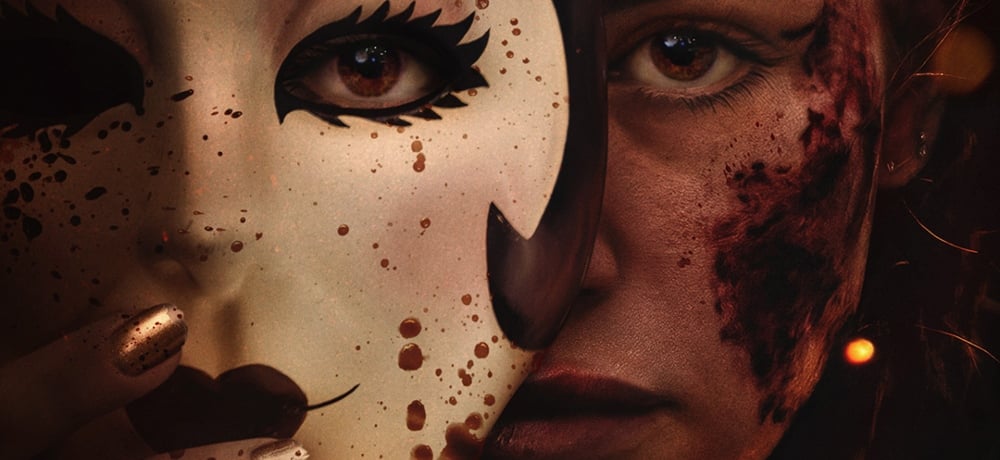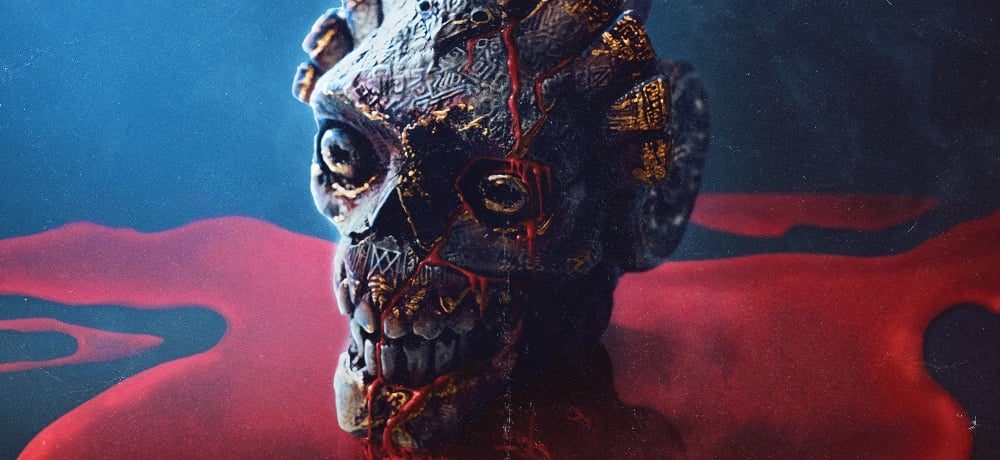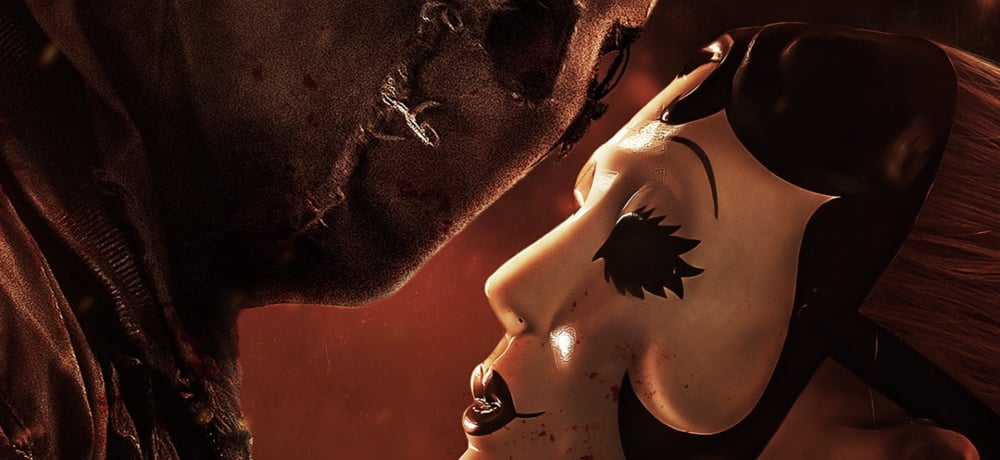





Season 2 of Robert Kirkman’s series Outcast is set to return this Friday, July 20th on Cinemax. The long-awaited show will further its exploration of the evil force infiltrating the town of Rome, West Virginia, with Patrick Fugit’s embattled character Kyle Barnes caught right in the middle of the demonic chaos that threatens to destroy his family and everyone he knows.
Daily Dead recently had the opportunity to chat with Fugit about the return of Outcast, and he discussed how his character has evolved through both seasons of the series, playing against expectations with the show’s thematic material, working with his fellow cast members, and more.
In Season 2, now that you know that this evil is everywhere and it seems to be leading to this big showdown, how has that changed Kyle's perception of what his role is in everything?
Patrick Fugit: At the beginning of season 1, we see Kyle in a sort of self-loathing and pitying place. He is on what he believes is a noble mission. He's taking on this burden of this darkness, this stigma of the wife-beater and the child-beater, because that’s how he can protect his wife and his daughter. It's the wrong way to do it, we find out. His wife finds out what really happened anyway, but it causes him to start evolving from this selfish place to a more family-oriented place. He's actively protecting his family at the end of season 1, or at least he's trying. He's not the best at it, but he is trying.
In season 2, it takes him a while to realize what is happening. Kyle is not the brightest bulb in the box, so it's going to take him a while to find out that he will be required to play a much larger role in the scope of this war that's going on in order to protect his family. The mission does not just stop at his family. It's going to include this much larger scope. And season 2, a lot of it is about finding out how far that goes, and what his role is going to be and why and that sort of thing.
Patrick, Kyle is a really interesting character because he seems very passive in general, but there are moments when he’s forced to get violent in order to fight against these forces. Do those aspects of your character hang over you when you are in the midst of production?
Patrick Fugit: Ruminate, think, and regret? No. I like to train in martial arts and have really enjoyed a warrior ethos for a long time, so violence itself is something that I understand and am familiar enough with so that scenes like that do not bother me. But the idea of violence for the sake of violence is something that I think is gratuitous, and it really doesn't have a place here. Understanding the story and the character and the escalation to the violence is what makes it resonate for me and makes it feel so intense. And hopefully each time Kyle goes into those moments, not that we can excuse his behavior or forgive him, but we understand that it is part of the process. We understand how it gets to that point. And an important part of that is setting up the ability to change, the ability to refrain from that escalation for Kyle, hopefully. It’s about him finding a better method to deal with everything.
After two seasons, what's your takeaway from being immersed in this world of the occult? Is there an interesting observation that you've come out with, considering the type of research you must have done and some of the things that this series digs into?
Patrick Fugit: It's funny, because when I got the script initially, I saw the breakdown and it was like: possession. Robert Kirkman's doing possession. And I was not really hot on the idea of possession at the moment. When I was a kid, I watched The Exorcist and I shit my pants, and then I watched some other exorcism movies and I was like, "Okay, I get it. I get what we do with this template." So, it took reading it and finding out that Robert was actually shifting the perspective on that template. He was actually using our familiarity with the genre to subvert our expectations and provide a new dynamic and a new type of story and that sort of thing.
So, Robert has opened it up and created an entirely new mythology, which was interesting. It's been interesting to see what Robert and the writers have in mind as their bible, per se, of mythology. And then watching people pick those pieces out and be like, "Oh, I think this is what's going on. I think this is really what's going on." Some are incorrect, and some are more correct than they are wrong, and I think that's been the coolest part of all of this.
Heading into season 2, your character is now responsible for caring for his daughter, which is a big change to your world, especially when it comes to how you balance fighting evil and being a dad. Can you talk about that dynamic shift through this season? And are we going to be seeing Amber’s abilities explored further, too?
Patrick Fugit: That was some of the most exciting stuff to me. I met Maddie McGraw, who plays Amber, while we were filming episode 3 or something like that, and she's a little girl, so I was like, "Oh, cool. This is a little girl who is playing my daughter." We did a scene together and we were trying to get used to each other. But we started to sort of play and discover while we were on set to build a rapport, so that it looks easy on camera, and through that, we actually developed a great friendship, and with her parents as well. Her parents are so awesome. She has a great family, and she's awesome, too. She's a really talented actress.
So, at the end of season 1, when I discovered as a reader that she has this power and that that's a new dynamic, I wanted the opposite of what Kyle wants, which is that he wants to protect her. He's like, "No!" It's his worst nightmare. He has suffered so much because of this element of his life and now he realizes he's passed it to his daughter, which is what he was afraid of doing in the first place. So, he thinks it's going to ruin her life now. That's how he sees it. But I was like, "This is great! She's a fu--ing superhero [laughs]."
Really quick before we have go, I wanted to ask how much fun it is for you to play against Brent Spiner in Outcast?
Patrick Fugit: He is so great. I grew up watching Star Trek: The Next Generation, and it may seem like a bad thing to identify with an actor with a role that they played 20 years ago, but to me, Data was like Luke Skywalker, in the way that Mark Hamill will always be Luke Skywalker, Carrie Fisher will always be Princess Leia, and Brent will always be Data. Their incredible performances are always going to be ingrained in those characters.
I grew up watching Brent, and they gave him all these great acting challenges throughout the different seasons of Star Trek: The Next Generation, and you got to see this actor playing a machine that wants to be human, so he has to be human enough to be relatable, but also machine-like enough that you believe he's an android. That's a really crazy acting challenge: to bring soul to a machine. It's really a cool balance and I appreciated that as a kid.
But also, he got to play Noonian Soong, the guy who created Data and Lore. He got to play Lore, which is like the antithesis of Data. And anytime they go into the holodeck, he's playing Sherlock Holmes or he's playing Henry the Fifth. He gets to do all these different things, and I saw that and I realized that was what you have to be able to do as an actor. You have to be able to believably shift your persona, and he’s done that so well for so long. So, getting to meet him and work with him, I was always struggling not to nerd out on him [laughs].